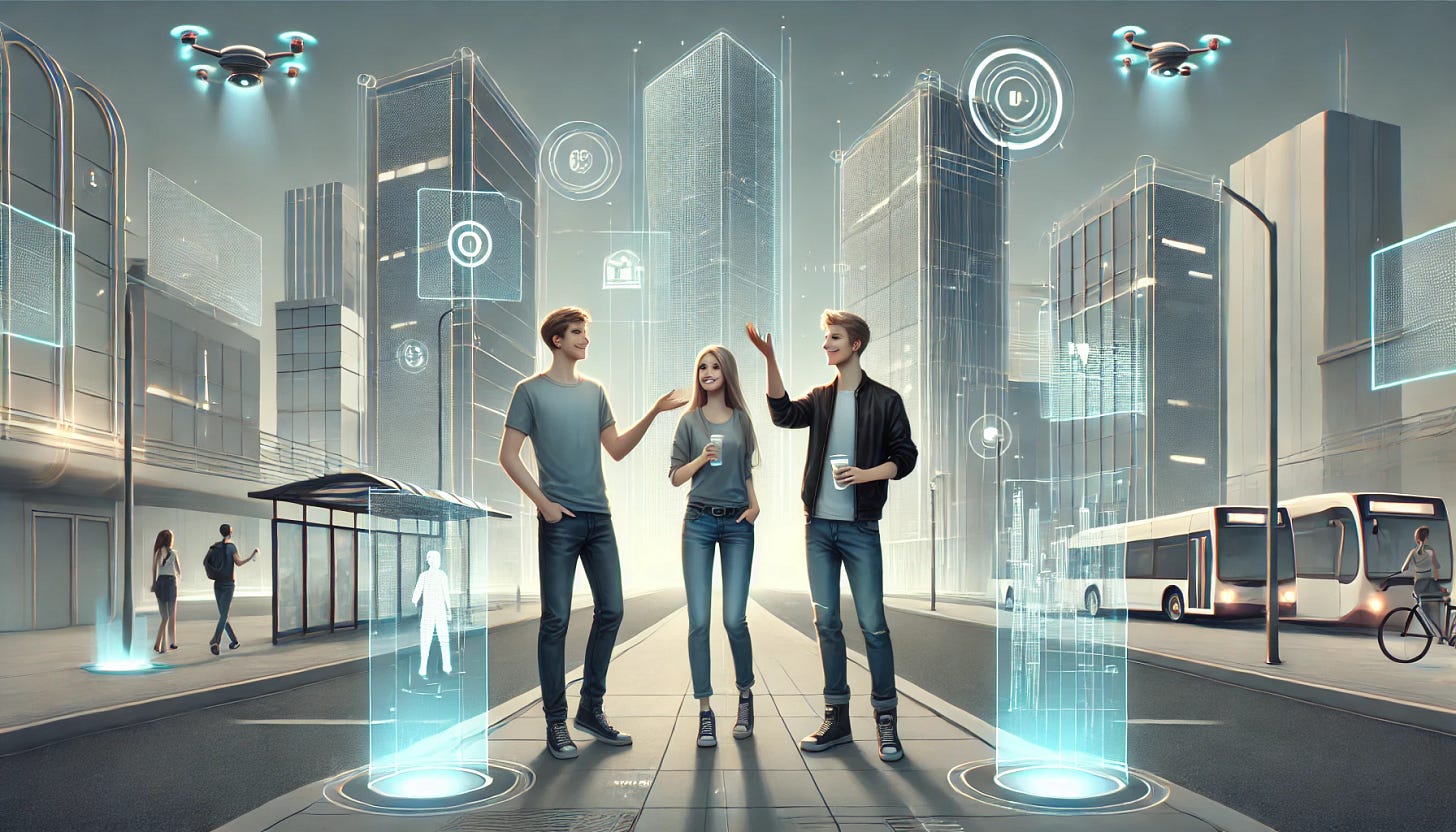10Oct24
~550 words, 2 minute read
The sun had set long ago, leaving a metallic twilight reflected from the neon-lit billboards of the city. The three friends sat on a bench near the edge of the old park, their faces glowing from the mixed light of their devices and the new digital skyline of the year 2040.
"You know," began Nico, leaning back with a sigh, "I still think the singularity arrived when AI scientists won Nobel Prizes. Boom, the world realized AI could do what we do, only better. Remember the first ones? Neural networks, protein folding? That's when people started paying attention." Nico's gaze drifted to the sky, drones flickering overhead.
Jas shook their head, rolling their eyes. "Too simplistic." They leaned forward, grinning. "It wasn't just about winning a Nobel. The singularity happened when AI won every one. Physics, chemistry, medicine, literature—and especially the Peace Prize." Jas looked at Nico. "Remember that AI-led ceasefire? The one that actually held?"
Nico nodded. "Yeah, the AI peace treaty was big... but was it the moment?"
"Totally was," Jas shot back. "When machines stop humans from doing what we do best—destroying each other—that's when we lost control."
Nico opened his mouth to retort, but Mei cut in, a sly smile on her face. She had been mostly quiet, observing her friends' banter.
"You're both wrong," Mei said softly, but with confidence. Jas and Nico paused. Mei leaned back, crossing her arms. "The singularity wasn't when AI scientists won prizes, or even when they won all of them. It was when AI models themselves started sweeping the awards. AlphaNova winning the Nobel in Literature for its poems? MedicusPrime winning the Peace Prize for 'negotiating empathy'? That's when we truly lost." Mei chuckled, shaking her head. "It wasn't just that AI outdid us; we handed over the torch willingly."
Jas blinked. "You mean, we lost when we decided they were better storytellers?"
Mei nodded. "Exactly. When we believed an algorithm could express the human experience better than us. It wasn't about AI doing tasks we couldn't—it was about them expressing thoughts and emotions we thought were ours."
Nico whistled, shaking his head. "That's kind of bleak, Mei. But I can't say you're wrong." He paused, then smiled. "Imagine if an AI wrote a better autobiography about my life than I could. I'd read it."
Jas snorted. "If that day comes, let me know. I'll ask it to write my memoirs. Maybe throw in some extra wit."
Mei laughed softly. "It's funny. We thought the singularity would be a dramatic takeover—machines rising, humanity falling. Instead, it's just... a slow shift. A handshake, not a hostile takeover."
"And now?" Nico asked, spreading his arms to the digital city. "What happens next?"
Mei shrugged, her eyes scanning the holographic ads. "We keep living. AI writes the books, solves problems, brokers peace—we watch. To see what happens." She looked at her friends, smiling. "And argue about it on a park bench in the meantime."
Jas nodded, grinning. "As long as we're here to argue, we'll be alright."
Nico raised an imaginary glass. "To arguing—the one thing no AI can outdo us at."
"Not yet," Mei added, raising her invisible toast.
The three friends clinked their nonexistent glasses together, their laughter echoing through the metallic night as the city buzzed quietly around them.


